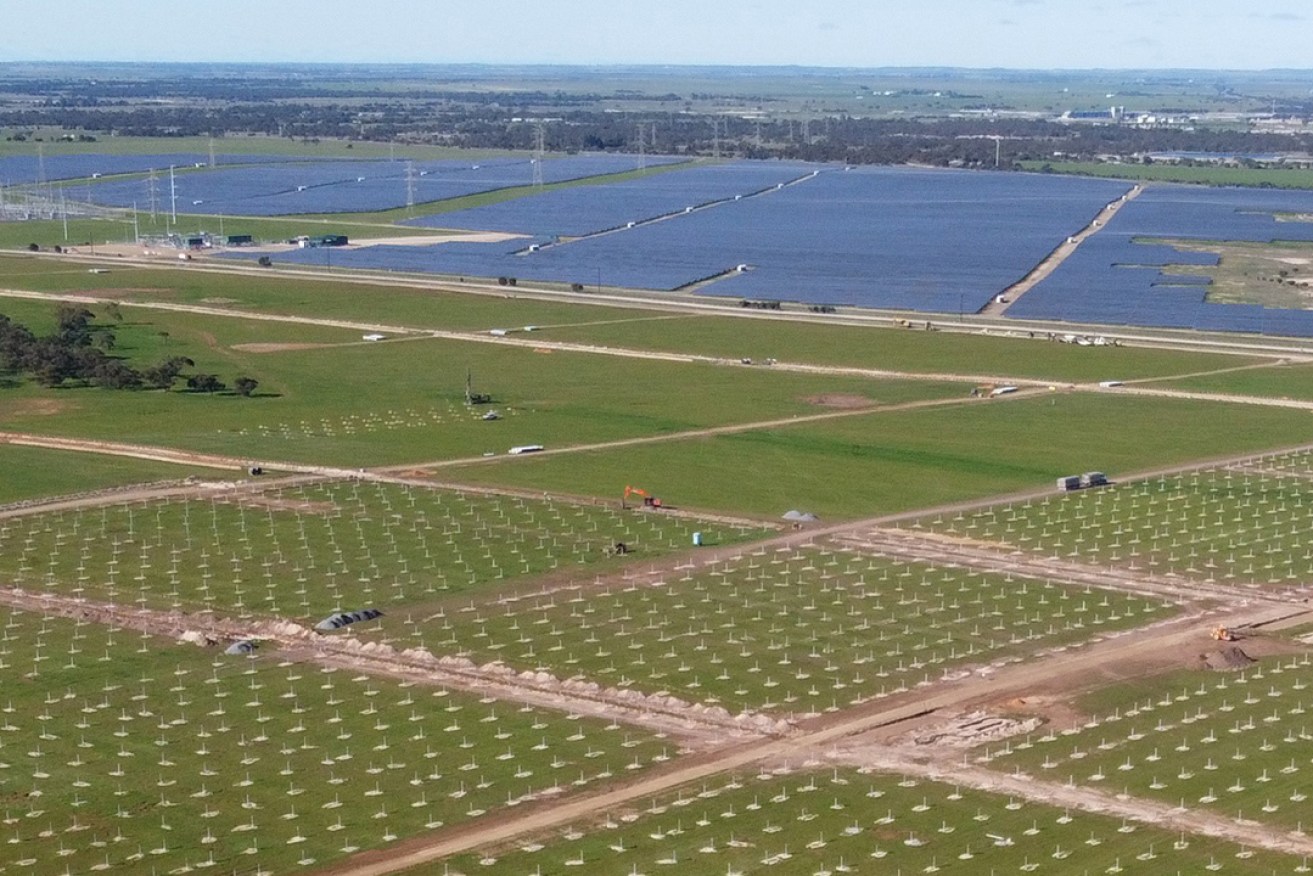Made in Australia Act: A once-in-a-generation opportunity
The government must deploy all the tools at its disposal to meet the climate challenge, argue Michele O Neil and John Grimes.

The Tailem Bend 2 Solar Farm Project is being constructed alongside its slightly larger sister project. Image courtesy of Vena Energy.
The Prime Minister’s Future Made in Australia Act is a once-in-a-generation opportunity to position our country to thrive in the new energy economy.
Criticism of the announcement based on the idea that governments should not be leading this change belongs in the past, and does not understand the challenges we face as a nation.
We have perhaps only 25 years to build a decarbonised economy in order to mitigate the worst impacts of climate change, and we are in a race to build the technology and sophisticated manufacturing base to ensure we can compete globally.
To achieve this level of change, government must play a strong role by leading the charge in partnership with business and civil society.
In this moment of urgent crisis and opportunity, we cannot afford a government that acts only as a market referee, sitting passively on the side of the field.
We need a government that is fully in the game – incubating new industries, driving key markets, and creating public value.
Only government can lead the change necessary to cut climate pollution in line with the Paris Agreement, become a global leader in clean exports and manufacturing, and create generations of prosperity for Australian workers and communities in the process – including those that have been keeping the lights on in this country for generations.
This nation-building quest requires a historic step-change in policy and investment support, leveraging all the tools at the government’s disposal including investment in workforce development and research, production tax credits, grants, loans and other fiscal supports, updated procurement standards, and public equity stakes in critical industries.
Vision for the future
As leaders representing unions and industry, we are coming together to lay out a shared vision for what the whole program should look like.
To tackle Australia’s economic and climatic challenge, government must deploy all the tools at its disposal to accomplish four key goals.
- First: Leverage Australia’s wind, sun, and minerals to drive rapid development of world-leading clean export and manufacturing industries like green iron and aluminium, value-added transition minerals, green hydrogen, and renewable componentry so we can secure the next generation of good, safe, secure, well-paid jobs and national prosperity, while helping the world decarbonise
- Second: Build a national renewable energy network that gets the renewables in the right places and delivers benefits to local communities, so we can power our economy without wrecking the planet on which it depends
- Third: Electrify and retrofit every building and most vehicles in Australia, so we can lock in long-term savings for households and businesses, cut air pollution, and help everyone breathe easier
- Fourth: Invest now in widespread climate adaptation and resilience measures, including the necessary jobs and training, so we can buffer the human and economic toll of future climate disasters and weather the storms rendered unavoidable by emissions to date.
The Prime Minister’s Future Made in Australia Act represents a huge step forward, and each of these areas will require historic levels of public investment to “crowd in” even greater levels of private investment.
This is not about government writing a blank cheque.
If the government is going to invest public money, it must produce public good – not just profits for corporate shareholders. That means placing common sense conditions on public support.
We need to make sure new industries create safe, secure and well-paid jobs. We need to make sure the rollout of clean infrastructure is paired with funding for community benefits, particularly for low-income households.
And, critically, we must respect First Nations communities. Not just ensuring free, prior, and informed consent, but actively co-creating opportunities for First Nations ownership of, employment in, and consultation on clean energy projects.
Conditions like these are a necessity, not a luxury.
The net-zero transformation will require an extraordinary degree of social trust.
The only way to win and maintain that trust is to ensure ongoing, material benefit for the workers building the clean economy and the communities hosting it.
The Prime Minister has made a visionary call for Australia to “think big” on climate solutions and “go toe to toe” with places like the US, European Union, and Canada that are embracing unprecedented ambition on the clean economy.
Underneath all the noise from conservative pundits, a consensus is emerging across Australian society that strongly supports making this vision a reality.
Michele O’Neil is president of the Australian Council of Trade Unions; John Grimes is the chief executive of the Australian Solar Council and the Energy Storage Council.
– TND




